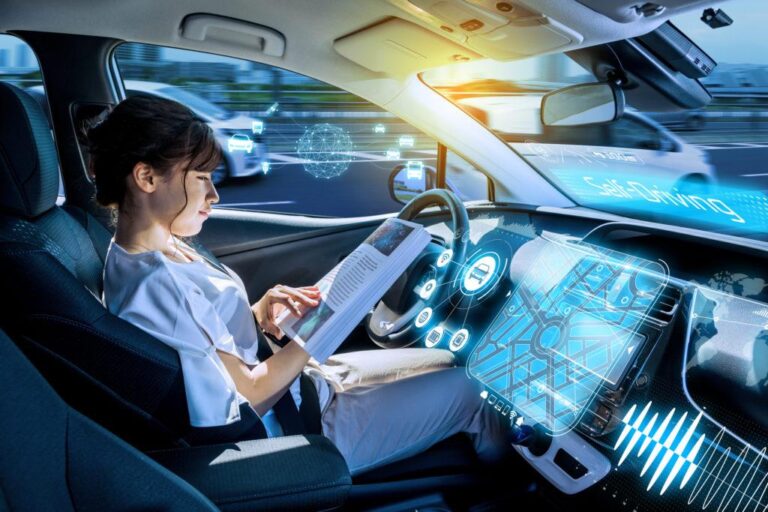Uber and Chinese autonomous driving technology company Momenta have announced plans to begin testing self-driving vehicles on public roads in Germany in 2026. This collaboration marks a significant step forward in Uber’s global expansion of its autonomous vehicle program, as the companies aim to leverage Momenta’s advanced AI-powered driving systems to navigate complex European traffic environments. The initiative reflects growing momentum in the development and regulatory acceptance of autonomous driving technology across Germany and Europe, positioning Uber and Momenta at the forefront of this emerging market.
Uber and Momenta Join Forces to Launch Autonomous Vehicle Trials in Germany
Uber and Momenta are set to revolutionize the German mobility market with their upcoming autonomous vehicle trials scheduled for 2026. The collaboration combines Uber’s extensive ride-hailing expertise with Momenta’s advanced AI-driven autonomous driving technology, aiming to deliver safer and more efficient transportation solutions. This initiative marks a significant milestone in Europe’s push towards integrating self-driving cars on public roads, focusing initially on urban and suburban environments around Berlin and Munich.
Key aspects of the trial include:
- Real-time data processing: Leveraging Momenta’s proprietary AI algorithms for dynamic route optimization.
- Passenger safety protocols: Employing redundant sensor systems and remote monitoring support.
- Regulatory compliance: Coordinating closely with German transportation authorities to ensure legal adherence.
- Environmental impact: Promoting electric autonomous vehicles to reduce emissions.
The companies will also gather extensive user feedback to enhance vehicle performance and customer experience. Early reports suggest the partnership aims not only to demonstrate autonomous vehicle viability but also to pave the way for scaling autonomous ride-sharing services across Europe within the next decade.
| Feature | Uber Contribution | Momenta Contribution |
|---|---|---|
| Ride-Hailing Platform | Extensive User Network | Integration of Autonomous Vehicles |
| Technology | Customer Interface & Payment | AI-Powered Driving Systems |
| Safety | Operational Protocols | Advanced Sensor Fusion |
| Regulation | Local Licensing & Compliance | Autonomous Vehicle Certification |
Exploring the Impact of Self-Driving Cars on Germany’s Transportation Landscape
Germany’s transportation industry is on the verge of a transformative shift as Uber and Momenta announce plans to launch autonomous vehicle trials by 2026. This initiative is set to place Germany at the forefront of self-driving technology in Europe, combining Uber’s extensive ride-hailing network with Momenta’s cutting-edge AI capabilities. The integration of autonomous vehicles promises to enhance urban mobility, reduce traffic congestion, and improve road safety, aligning with Germany’s ambitious sustainability goals. Experts predict that these pilot programs will also serve as a litmus test for broader regulatory frameworks needed to accommodate self-driving cars on the country’s complex roadways.
Key areas poised for change include:
- Public Transportation Synergy: Seamless coordination between autonomous fleets and existing public transit systems.
- Environmental Impact: Potential reduction in carbon emissions due to optimized routing and electric vehicle integration.
- Economic Opportunities: Creation of new jobs in AI development, vehicle maintenance, and smart infrastructure.
Below is a summary of projected impacts for Germany’s transportation landscape by 2030:
| Aspect | Projected Change | Potential Benefit |
|---|---|---|
| Traffic Flow | Up to 30% improvement | Reduced congestion |
| Road Safety | Decrease of 25% in accidents | Fewer fatalities and injuries |
| Commute Times | Average reduction of 15 minutes | Enhanced productivity |
Recommendations for Regulatory Frameworks to Support Safe Autonomous Vehicle Integration
As autonomous vehicle testing accelerates with Uber and Momenta’s upcoming trials in Germany, it is crucial to establish a robust regulatory framework that balances innovation with public safety. Clear standards for software reliability, cybersecurity protocols, and real-time data sharing should be mandated to ensure vehicles can navigate complex traffic environments without endangering pedestrians or other drivers. Additionally, regulators must collaborate internationally to harmonize laws, enabling seamless cross-border testing and eventual deployment.
Moreover, there should be a focus on adaptive legislation that evolves with technological advancements. This includes:
- Implementing staged certification processes based on vehicle capabilities and operational design domains (ODD)
- Requiring transparent incident reporting systems to facilitate rapid response and continuous improvement
- Integrating ethical considerations into decision-making algorithms, especially in unavoidable accident scenarios
| Regulatory Focus | Key Requirement | Benefit |
|---|---|---|
| Safety Standards | Mandatory hazard detection & response tests | Enhanced accident prevention |
| Data Transparency | Real-time traffic data sharing | Improved vehicle coordination |
| Cybersecurity | Encrypted communication protocols | Protection against malicious attacks |
Future Outlook
As Uber and Momenta prepare to launch their autonomous vehicle tests in Germany by 2026, the collaboration marks a significant milestone in the advancement of self-driving technology within Europe. The partnership not only underscores the growing momentum behind autonomous mobility but also highlights the regulatory and technological strides required to bring driverless cars to public roads. Industry observers will be closely watching this development as a bellwether for the future of transportation and the evolving landscape of urban mobility solutions.




